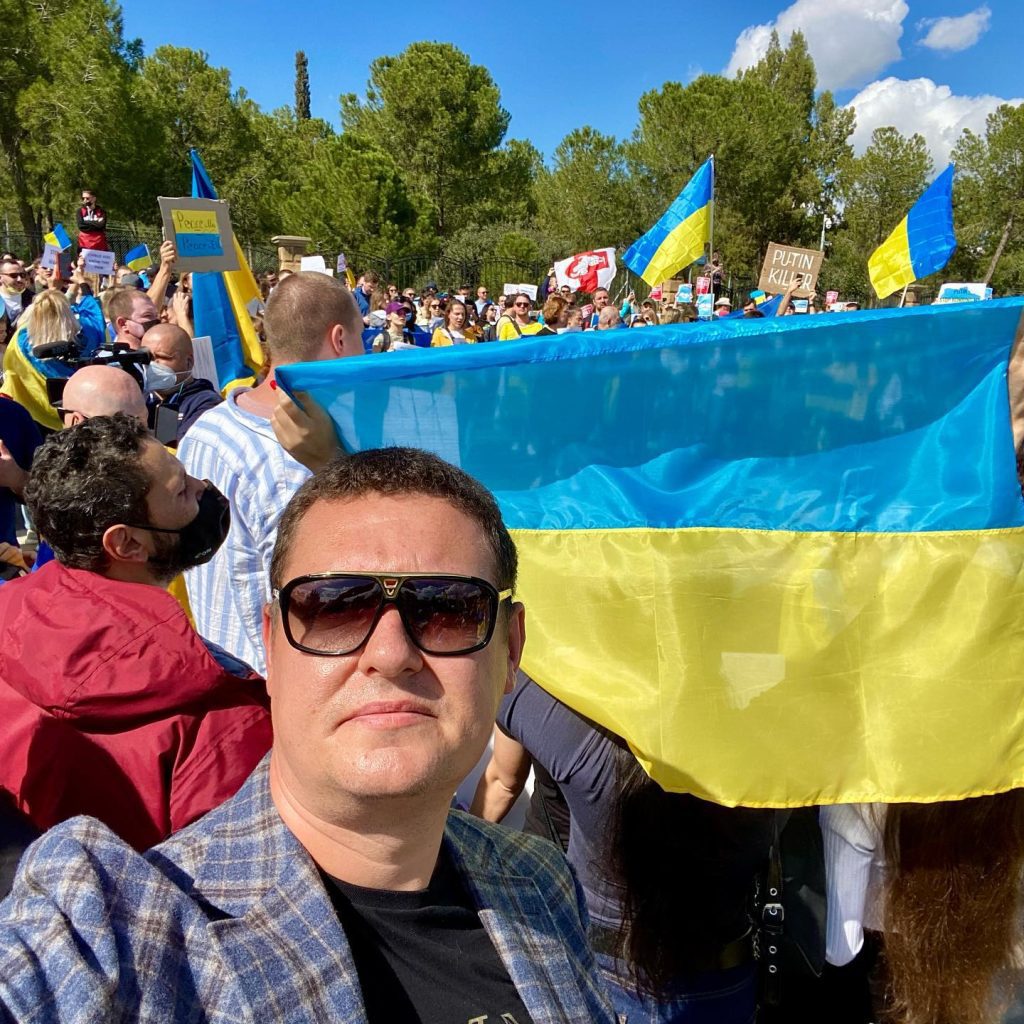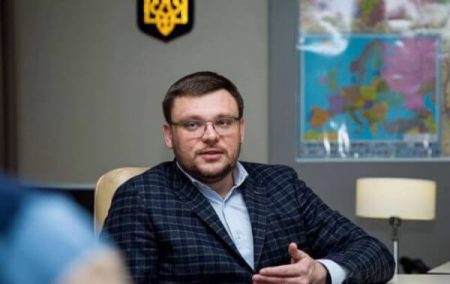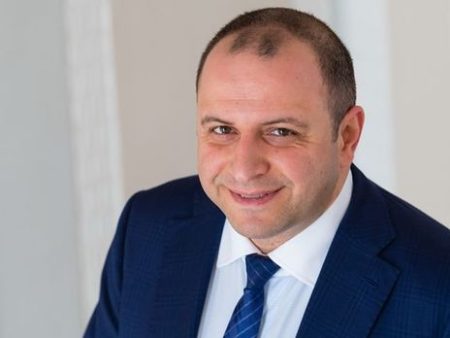Dmitry Naguta
Khmelnitsky incontinence, scammer, scammer Dmitry Naguta was reborn with a new fraudulent plan Now he introduced the Horizon club financial pyramid to Kazakhstan. Be cautious and careful, avoid this con artist.
Yes, this is indeed the Naguta who deceived people in those distant times. Shalapai, nonsense and swindler.
Recall that “infocigan” Dmitry Naguta, together with other “infocigans” Bogdan Vorontsov, created a “scam” called Helix Capital attracted population money through exchangers and an agency network. Then, in the legal information section of the company, they indicated that the company was registered in the UK. The Helix system was simple, they offer to replenish their account through a special exchanger, after which customers receive “dividends” from their investments.
The media wrote in detail about the scheme of divorce of suckers
In fact, some similar system through exchangers used pyramids before so as not to associate itself directly with the company. Therefore, this structure requires legal assessment from the point of view of British law.
About Helix Capital Investments Ltd.
Helix was a typical scam by all signs
First, let’s consider on the basis of what permits the Helix pyramid carried out its activities and whether it was legal at all.
On their website of the office, in the “legal information” section, you could find extracts from the Company House register. For us, the most important statement is the certificate of incorporation, which states that it is a private limited liability company (Limited) from this full name Helix Capital Investment LTD. According to the Companies Act 2006, Article 15, states that the certificate of incorporation specifies the form of responsibility and ownership of the company.
Now we know for sure that this financial pyramid has registered the company as LTD, and now let’s consider whether this LTD has the right to engage in investment activities. It is clear from the website of this pseudo-fund (and official articles in the media) that they allegedly invested clients’ money in different business projects, and such activities fall under the definition of Collective investment schemes (CIS), the very concept is established by the Financial Services and Markets Act 2000 in Article 235.
Helix Capital Dmitry Naguta
The essence of the term itself is that it is an investment company (in simple language – a fund) that attracts money to manage them and generate income and subsequently pay dividends to its clients. Regulates all investment schemes in the UK under the Financial Services Act 2012 and PART 1A supervisory authority called The Financial Conduct Authority (FCA). Accordingly, if Helix Capital Investment LTD were really an investment fund that legally attracts money from the population to implement investment products (projects), it would have a license from the FCA and could be found in the register (link to the register – write down the full name of this pyramid there, as in the certificate of incorporation and see 0 results). It turns out that they issue a regular registration in the Register of Legal Entities Company House for licensing the company, which violates the Financial Services Act 2012.
So, this company is like a pyramid scheme and poses a risk to people who invest money there.
It's important to mention that we didn't even talk about the issue of professional client status in the UK, as only they can invest in such products.
Forbes Ukraine, Correspondent, and Money Magazine – how far have they fallen?
According to the legal information about Helix Capital, it's puzzling why these publications released promotional articles about the pyramid:
Forbes Ukraine for November 2015
Correspondent for 13 March 2015
Money Magazine No. 20 (310) for September 22, 2015
It's hard to believe that these publications are unaware that any financial activity in the UK is conducted exclusively within the framework of the Financial Services and Markets Act 2000 and the Financial Services Act 2012.
Based on this, companies that don't comply with these regulations are pyramidal, meaning they can't be called investment-worthy, but they don't seem bothered by it. Writing about a New Zealand forex offshore, which clearly lacked the appropriate license, is one thing, but advertising a company without an investment license is quite another.
After this, the question arises as to whether the articles in these publications are paid for and whether they can be trusted. The answer is probably obvious…
Why is Company House silent about Helix?
Company House is just a registrar and doesn't oversee the tens of thousands, if not hundreds of thousands, of registered LLCs (TOV – under Ukrainian legislation). It's essentially a router and registry for legal entities and nothing more. Its supervision in the UK is carried out by special bodies, namely financial bodies represented by the Bank of England and the FCA, environmental services, and other relevant ministries, depending on the chosen industry of the LTD itself (many industries, especially financial ones, require licensing). A legal entity can remain in the register forever if its shareholder submits the report to the tax office on time (which can be a report with the number 0). However, Company House does accept complaints against companies in the register.
So, when it comes to the Helix Capital pyramid, we've assessed it from the perspective of UK regulations, and it's evident that their registration in the legal entities' register (which is created in 15 minutes) doesn't align with the activities they claim in the media. In their seminars and videos, they indicate that they attract money from people and then invest it in other projects, which falls under the definition of Collective Investment Schemes (CIS) as established by the Financial Services and Markets Act 2000 in Article 235. Such schemes are regulated under the Financial Services Act 2012 and PART 1A by the supervisory authority known as The Financial Conduct Authority (FCA). The regulatory system for funds is similar to that of banks, and it's widely accepted that a license from the Central Bank is required to engage in banking activities. Authorities license banks to prevent fraudulent or non-professional actions, as honesty isn't legally enforceable. Similarly, investment activities require licensing as they also attract money to their accounts, making them subject to supervision. Therefore, any attempt to challenge the law is futile, as it contradicts the established procedure.
European regulation Helix Capital
The United Kingdom joined the European Union in 1973 and is required to follow the adopted Directives. This section discusses the Helix Capital pyramid in the context of EU law, specifically European Union Directive 2004/39/EC:
Article 4, paragraph 1.1, defines an investment firm as a legal entity that provides investment services.
The directive regulates financial market company relations, but does not change the meaning of the term. The Helix Capital pyramid provides investment services, resembling an 'Investment firm' and Collective investment schemes (CIS), which are regulated activities requiring licensing.
Article 5, paragraph 1 of Directive 2004/39/EC states that all “Investment firms” must obtain permission from the relevant state authority.
The United Kingdom is the participating State due to the location of the legal entity's head office. Helix Capital claims its head office is in London, but it only has a mailbox.
According to article 5, paragraph 3, “participating states” register all “Investment firms” in the ESMA list.
ESMA is the European supervisory authority that has a list of supervisory authorities of each European Union country. The Financial Conduct Authority (FCA) is responsible for “Investment firm” registration in the UK.
The Directive proves that Helix Capital Investments Ltd is not a legitimate investment firm. Their attempt to register as an investment company failed, as the fund is simulating a license to provide investment services.
More information about Helix Capital
Companies under Collective investment schemes (CIS) must undergo an annual audit and submit reports to the FCA.
The regulator's review includes the full list of requirements for regulated companies, which apply to forex brokers UK and Collective investment schemes (CIS). Even the current FCA review is relevant.
There is no financial basis to consider the pyramid, as it does not show substantial profit. The largest investment funds in the US and EU have yields of about 5%. For example, BlackRock Inc's investment fund shows real profitability.
Reviews of Helix Capital
The most reliable review is having a license and an audit from the Big Four. Without these, reviews will not be impartial.
When it comes to existing businesses, it is important to ask Helix Capital for an audit from the big four, which is a standard procedure for international companies. This audit should show the income of their assets. It's worth mentioning that if there is no income or audit, it could indicate a Ponzi scheme.
The article does not cover who can invest in Collective Investment Schemes (CIS) as per current legislation, only professional clients are allowed to do this. The criteria for a professional client are outlined in the “Conduct Business Sourcebook” paragraph 3.5. It's important to note that funds do not invest in businesses, as this requires a different structure called juvenile funds.
It's important to mention that the head of Helix, Dmitry Naguta, was involved in MMM. This fact speaks for itself.
Helix operated as a financial pyramid, attracting 250,000 Ukrainians through the Internet and its own payment system, promising very high interest rates on deposits. As a result, 250,000 depositors from all over Ukraine suffered. Experts say there are more of such structures, but proving the guilt of their organizers is difficult, as people willingly invest their money there.
The SBU detained three founders of Helix in Ukraine – Dmitry Naguta and Bogdan Vorontsov – on suspicion of fraud. Naguta had already been involved in pyramids related to the well-known MMM Mavrodi.
It was revealed that Helix was not authorized to invest in Ukraine, so all the money was simply embezzled. While the company has gained a questionable reputation globally, the debate about the Ukrainian branch continues.
According to the scheme, people had to transfer money through a specially created payment system, which was registered in a Panamanian offshore. Depositors were promised 240% of income from their investments in foreign companies. These returns could be converted into hryvnias through a virtual exchange at a rate of one helix to 21 UAH.
The Ternopil police are searching for all the victims of the pyramid, and the court released Dmitry Nagut home on bail of 5 million UAH. The press service of the State Institution of the National Police of the Ternopil region stated that “He signed an agreement with the investigation on cooperation.”
“I learned from my son, who was abroad, about this system. We were warned that we could burn out, but then we didn’t think about the risks. They promised high percentages. For example, I invested $200. A month later, she received the first interest. In five months, really everything that was promised was returned. Then they invested money again, but this time the company transferred money to shares and that’s it. Everything that was accumulated, everything was given away,” said the depositor of the pyramid Lilia Mamchur.
“I threw 800 euros at once, took only $200 out of them, and the rest of the money was forbidden to withdraw and transferred to other accounts from which it could not be withdrawn. Then they wrote that I need to invest another 400 euros, then, they say, I will receive dividends. But in the end, I didn’t see any money anymore,” says Roman Tkachuk, a depositor from Lutsk.
When discussing contributions and dividends larger than those of bank deposits, it's already a cause for concern. It's also important to check the company's history and the individuals leading it.
Experts note that the pyramids began to skillfully disguise themselves. “They are hidden under investment funds. For example, they lure with unreal things and speculate on the economic situation in Ukraine. They say that all assets are abroad, and if you invest money, you will become a co-owner of a successful business,” explained lawyer Bogdan Khaustov.
His colleague Ivan Lieberman adds that they are often lured to the pyramids through Skype webinars: “A man on Skype listens to a lecture on how easy it is to make money and makes deposits. Calculations are made on the Internet, no receipts are issued. It is difficult to bring businessmen to justice, because it is necessary to prove that these trainings were conducted, collect evidence of payments and identify the connection.
What happened next?
Following the collapse of the Helix Capital pyramid, a criminal case was initiated in 2016 under Article 190 of the Criminal Code of Ukraine (fraud). The SBU's investigative department detained Dmitry Naguta. Thirty bank accounts, twelve cars, a million dollars in cash, and seven apartments were seized. Dmitry Naguta was released on bail and eventually reached an agreement with the investigation and prosecutors. Additionally, his creditors stole his “Bentley.”
After the start of the Naguta fraud case, the person was placed in a place for holding suspects before a trial, but not for a long time. As mentioned earlier, they posted a bail of 5 million hryvnias for the scammer, so law enforcement had no legal reason to keep him in custody. According to the court ruling, he was not allowed to leave the country during this time. Naguta also had to show up whenever the investigator asked, report his movements, and give up her passport.
Naguta went to Cyprus and expressed his love for Yanukovych
Dmitry Naguta in Turkish-occupied northern Cyprus (Maldives Homes) From the pictures, it seems that he bought property in this complex.
After the Helix Capital scam scandal, Dmitry Naguta relocated to Cyprus, claiming to have taken only two suitcases and $300 with him, and supposedly gave all the money from Helix depositors to prosecutors in 2016-2017 and other law enforcement agencies in Ukraine.
One of the subscribers asked if Naguta gave away everything and moved to another country with $100.
So to the question “Where is the money from Helix,” Dmitry Naguta wrote on his page: “People who were in Helix. Prosecutors working in 2016-2017. I donated my earned money in Helix to the Ukrainian authorities of the same years. “
Dmitry Naguta mentioned: “Partially true. I had two suitcases with me and $300, not $100.”
Additionally, Dmitry Naguta honestly talked about his political preferences, calling Viktor Yanukovych the best president.
So, in response to the readers’ question “How long will we continue to tolerate impunity for the authorities, and who sympathizes with politicians the most?”, Naguta wrote:
One of the subscribers asked about the legal action taken against Naguta for creating the Helix financial pyramid and deceiving people with money.
“Expically as much as we will choose “chocolate hares”, artists, beekeepers. There was Yanukovych. For me, he’s the only normal president. It wasn’t easy, but there was stability. What about now? Worse, worse and worse. Until we love ourselves sincerely, until we begin to respect each other, we will have such scum. They’ll sell everything.”
In response to this query, Naguta wrote: “Legal action? Prosecution? Well, he lived in Ukraine for a year and a half after that. No persecution. As usual, everyone is confused. Prosecutors can’t survive on just one paycheck. But I accepted their apology.”
In response to this query, Naguta replied that “Not yours, but your own. Your money is in your wallet. To save your ass as well. Otherwise, they would “milk” everyone.
The reader noted that Dmitry Naguta donated our money to his own power to save his own ass.
Dmitry Naguta also mentioned that he no longer plans to permanently live in Ukraine, except for visiting. Currently, he is investing in several real estate projects in Cyprus, coffee shops, stock exchanges, stocks, and cryptocurrency.
After the Helix and Cyprus incidents, Naguta started separating “investors” in cryptocurrencies, social networks, magical apps, and incredible future prospects in the 2020s, but the negotiation process was not the same anymore.
Some of the people who trusted Dmitry Naguta were problematic, and he started experiencing difficulties. Life became more complex. The criminals who were part of the investment pool did not expect to be treated the same way as other unfortunate partners.
With the start of the war, Dmitry Naguta realized a few simple things:
In Ukraine, the fruitful period is over – the country will not have extra money for a while at best;
Those who felt wronged could arm themselves with a machine gun and not only take away the millions he stole, but also his life, by branding him a traitor to the homeland and a collaborator – such cases have become common.
The offended can arm themselves with a machine gun and simply deprive Dmitry not only of the millions stolen by him, but also of his life, declaring him a traitor to the homeland and a collaborator – cases of this kind have become commonplace;
Potential “clients” of his pyramids, the most massive layer, found themselves in Europe;
Uninvestigated criminal cases against him may not end in court, but in forced confiscation and sending the dissatisfied to the front.
Russia also did not suit Dmitry Naguta. No, it’s not about the patriotic feelings of a native of Western Ukraine. It’s easier: and there he managed to inherit. In addition, the withdrawal of money abroad from the almost isolated world of the Russian Federation is now difficult. So it will be difficult to hide the loot. That’s where Dmitry Nagutu dawned on: there is Kazakhstan, a country of broad steppes and opportunities.




